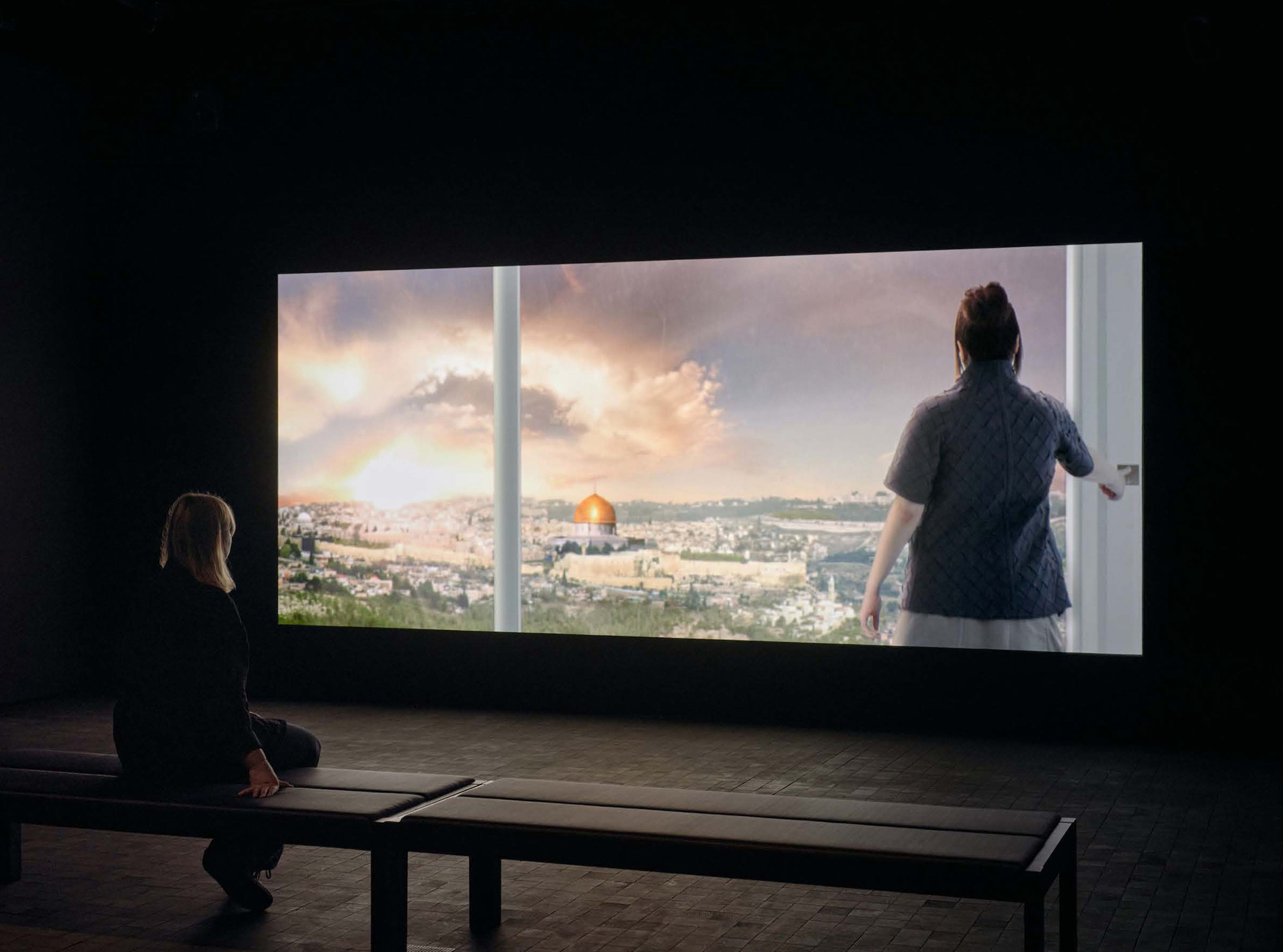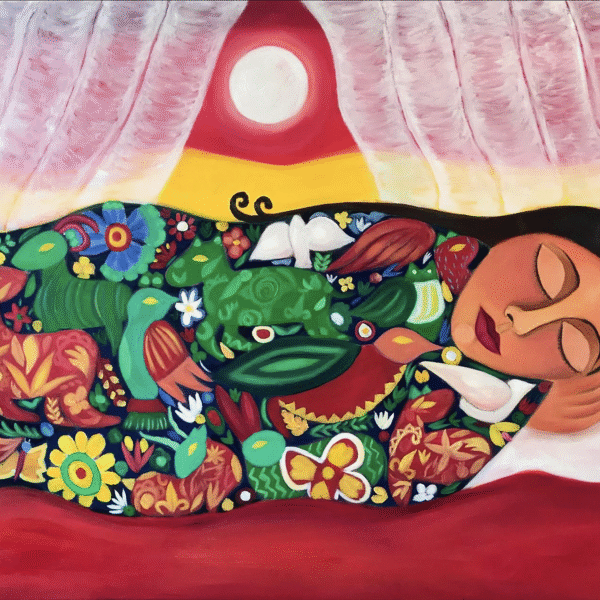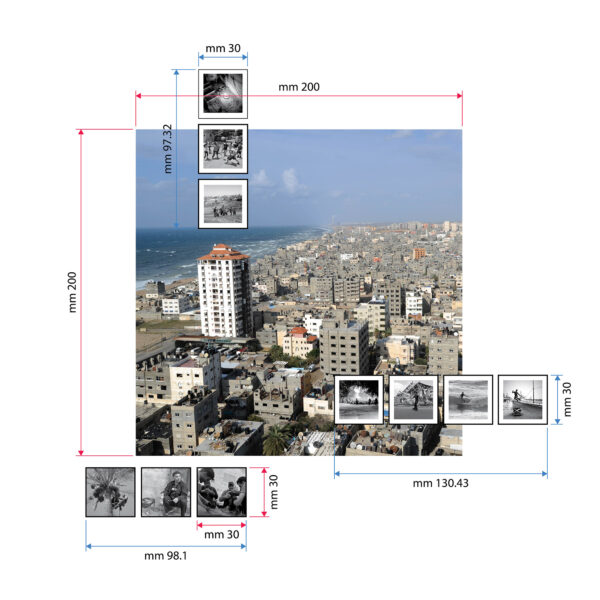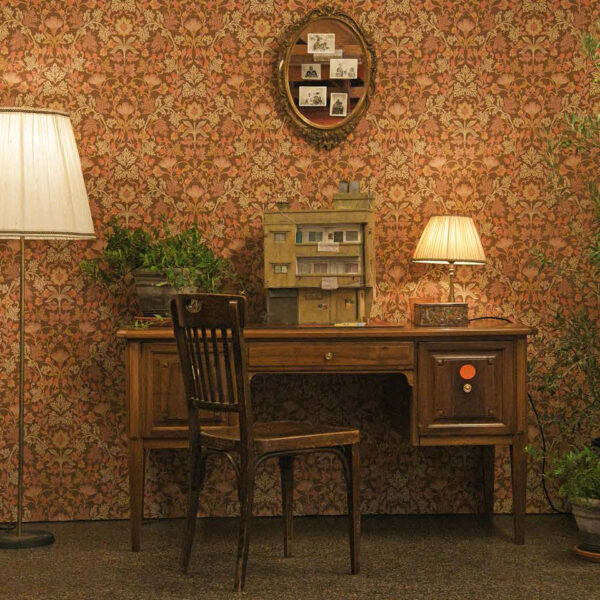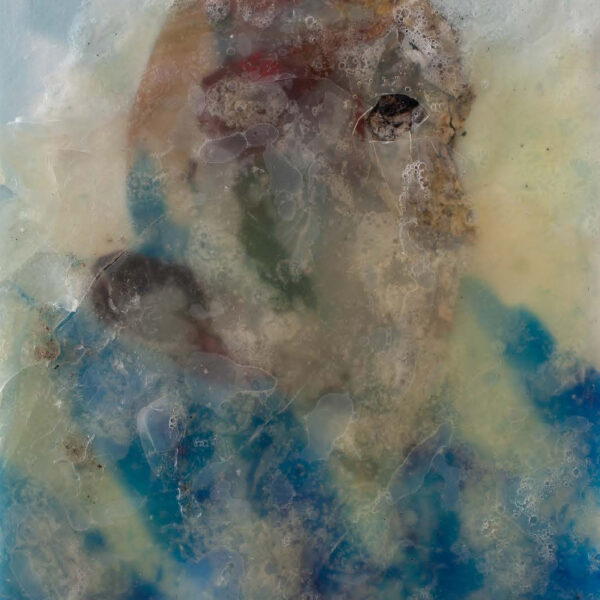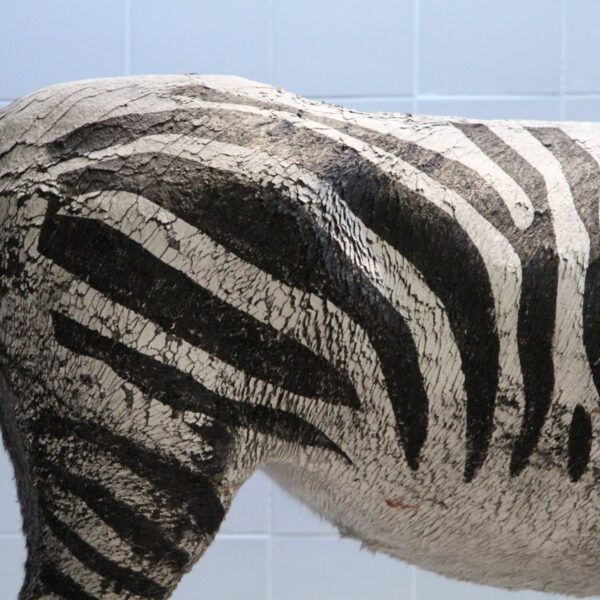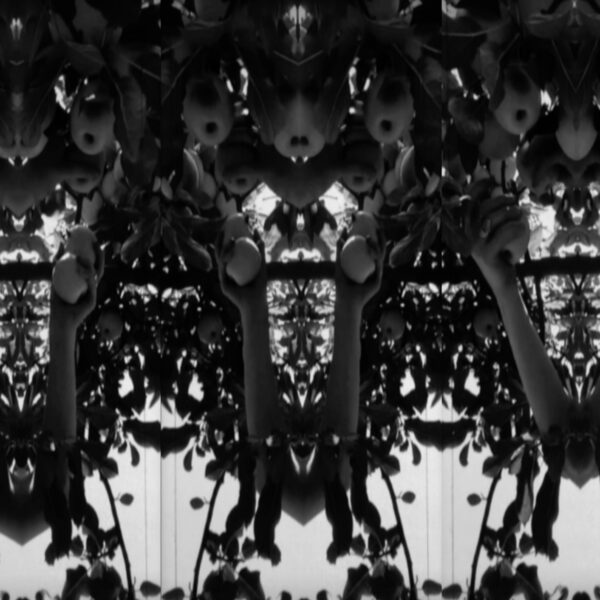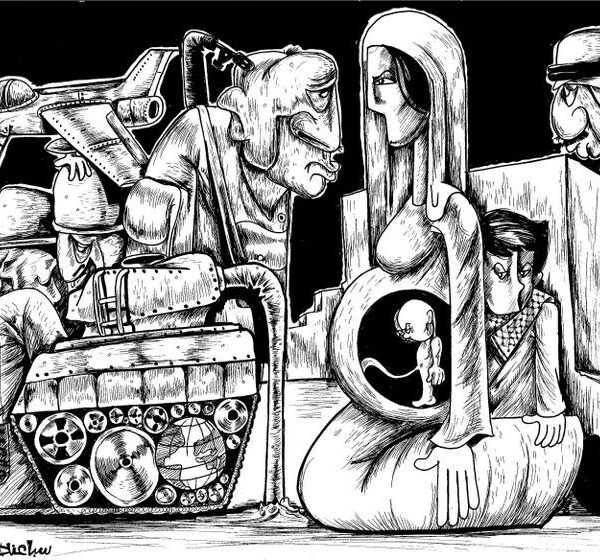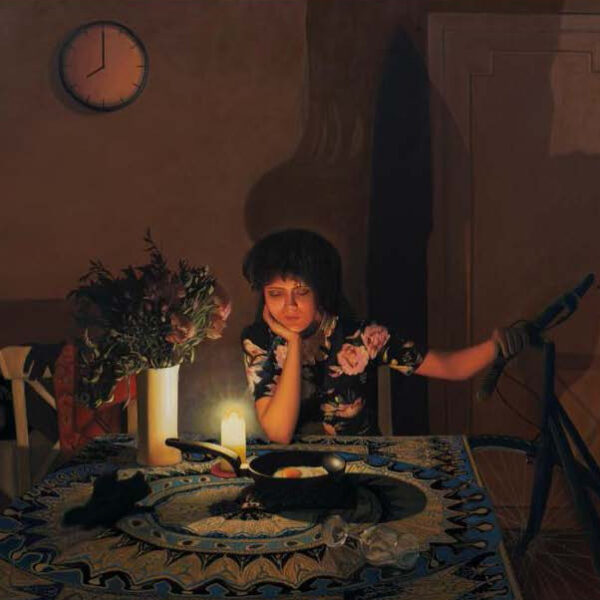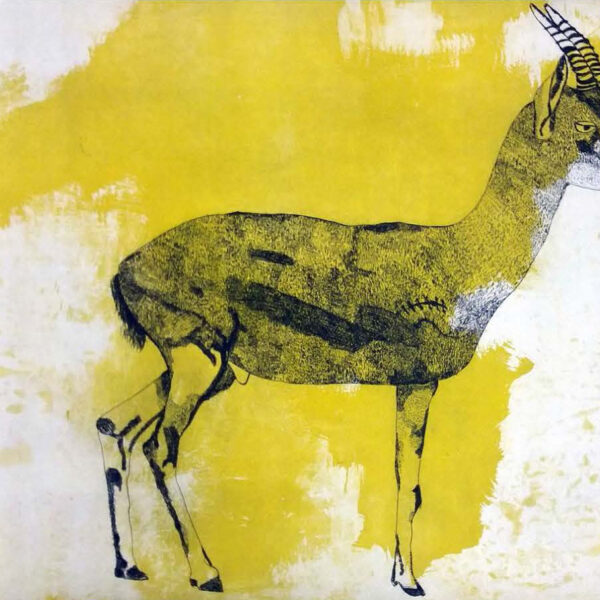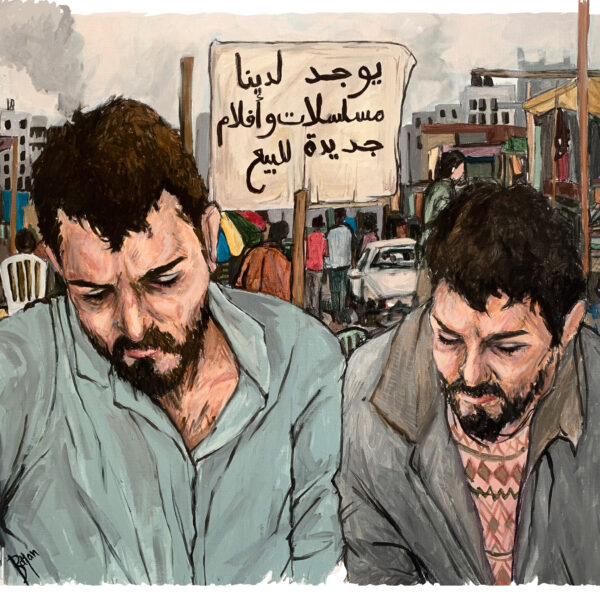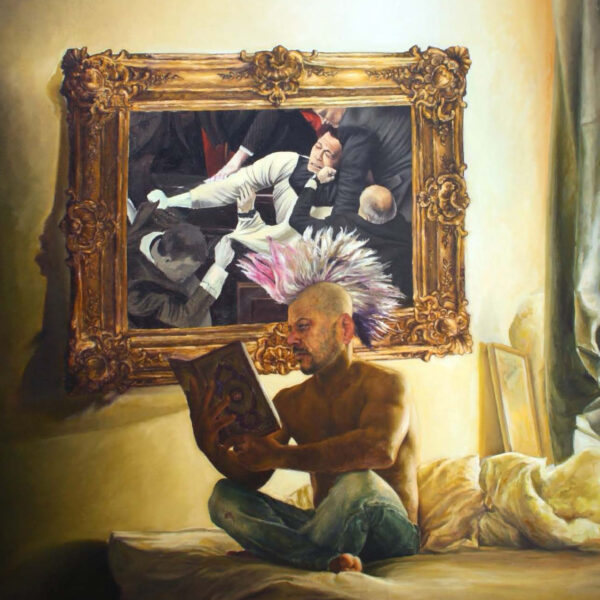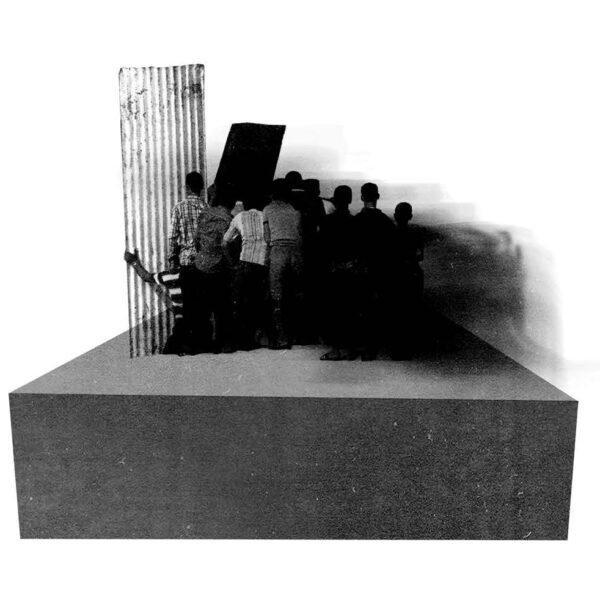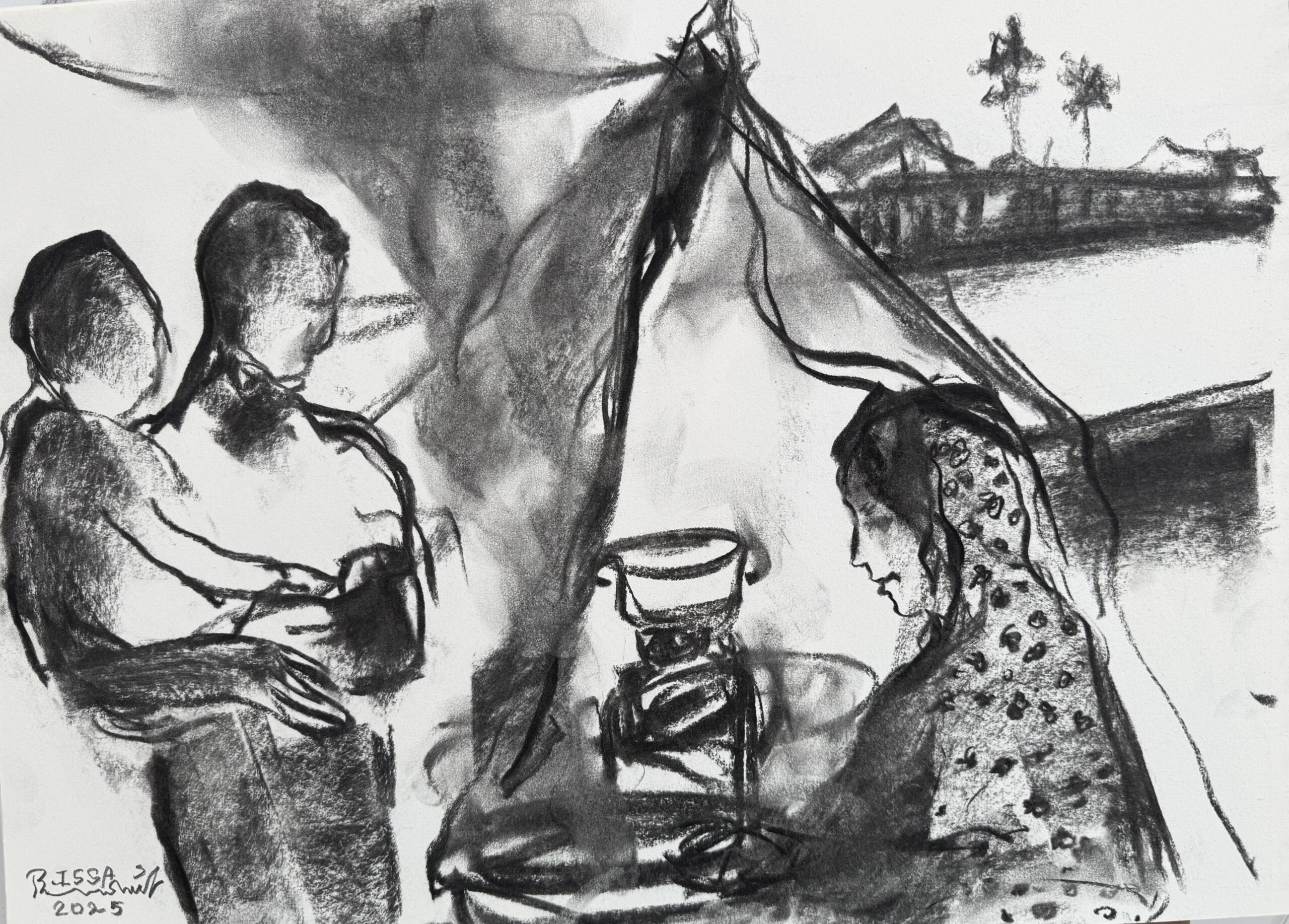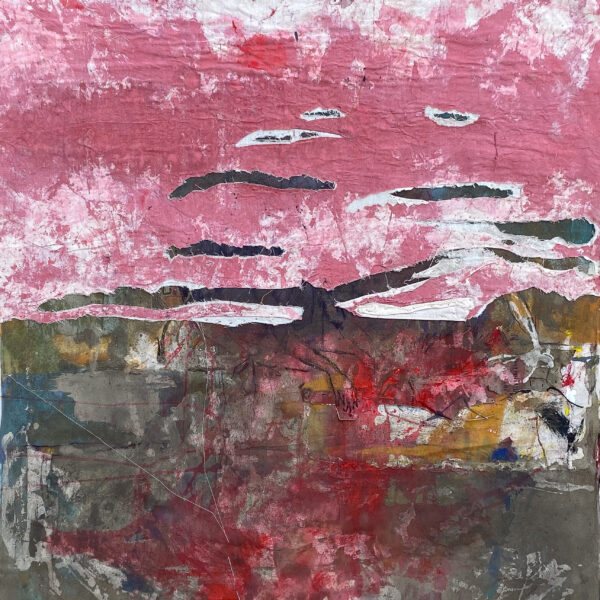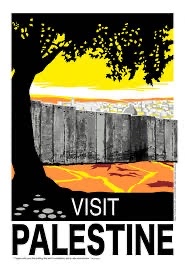Larissa Sansour
Dystopia of Exile
Larissa Sansour, born in East Jerusalem, is a Palestinian-Danish artist who studied Fine Arts in Copenhagen, London, and New York. She represented Denmark at the 58th Venice Biennale. Her recent solo exhibitions include shows at the Whitworth Gallery in Manchester, KINDL in Berlin, Copenhagen Contemporary in Denmark, and Dar El-Nimer in Beirut. She currently lives and works in London. Her exhibitions -from Manchester to Berlin, Beirut to Denmark- have brought her sci-fi-inflected political visual poetry to international stages.
Her art stems from the urgency to testify to a present marked by cultural and historical erasure. After living through the siege of Bethlehem in 2002, Sansour stated: “Filming myself and my family became a way to say: We exist; we did exist.” A phrase that encapsulates the core of her work: documenting Palestinian existence as a form of visual resistance.
Over the years, she has developed a distinctive language blending video, photography, installation, and science fiction narratives. Works like Nation Estate, A Space Exodus, and In the Future They Ate from the Finest Porcelain employ dystopian storytelling to interrogate trauma, loss, and collective identity. Nation Estate particularly envisions a Palestinian state confined to a single skyscraper — a potent symbol of segregation and spatial compression.
For Sansour, art is inherently political, yet operates through its own unique means. Her stylistic choices -spanning cinema, video installation, and performance- forge a resilient iconography that challenges conventional notions of time and memory. In Monument for Lost Time (2019), presented at the Danish Pavilion of the Venice Biennale, Sansour and Søren Lind transformed a digital sphere into a monolith, embodying the rupture between linear time and Palestinian lived experience.
Against rhetoric and erasure, Sansour crafts a visual culture that builds alternative universes — where political reality is translated into poetic visual code. In these speculative worlds, Israel often looms through its absence, while apocalyptic architectures become allegories of erasure and denied futures.
Sansour proves art can wield genuine political impact without sacrificing aesthetic experimentation. Her work rejects sentimentalised depictions of Palestine, instead claiming space for critical vision, dialogue, and collective imagination — where sci-fi becomes both mirror and manifesto.
© Elettra Stamboulis
see more: https://larissasansour.com/
Works
Artists



